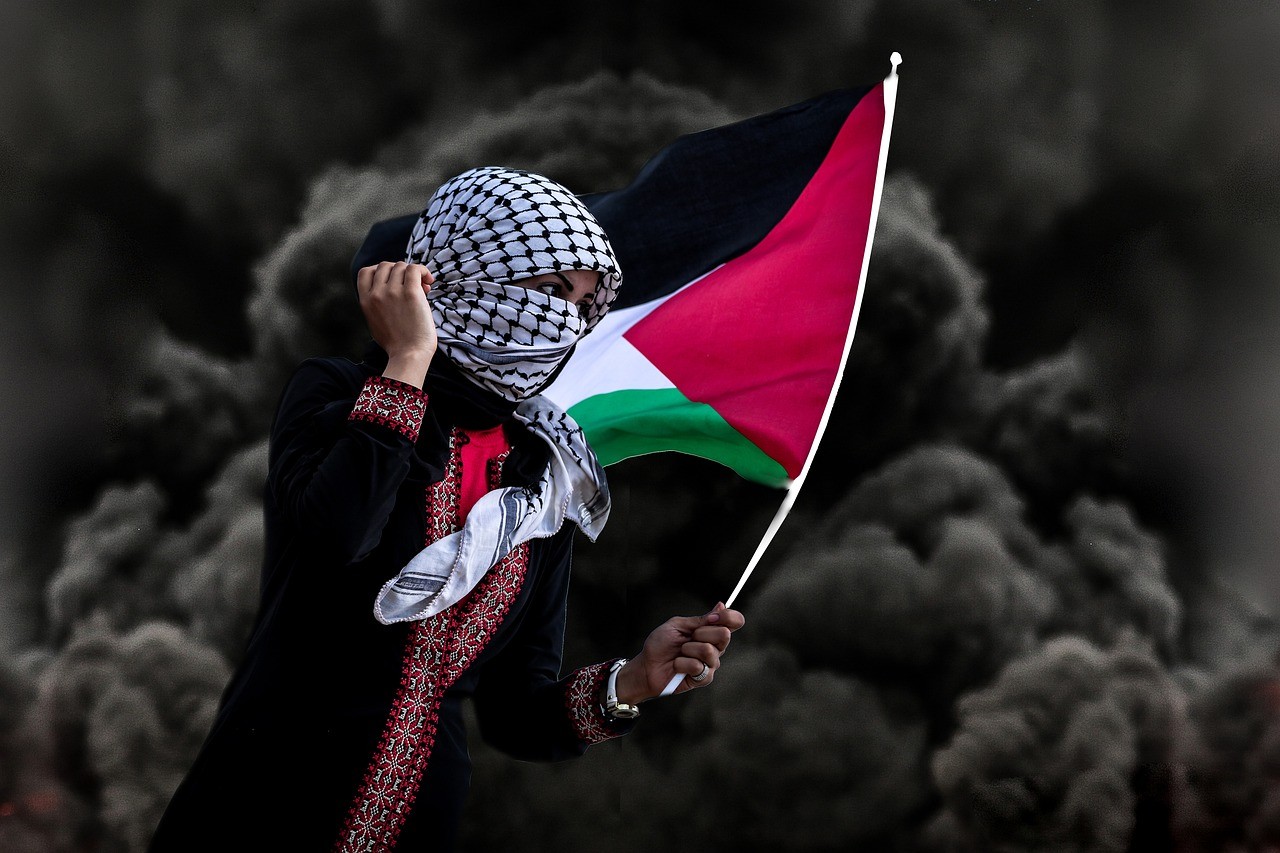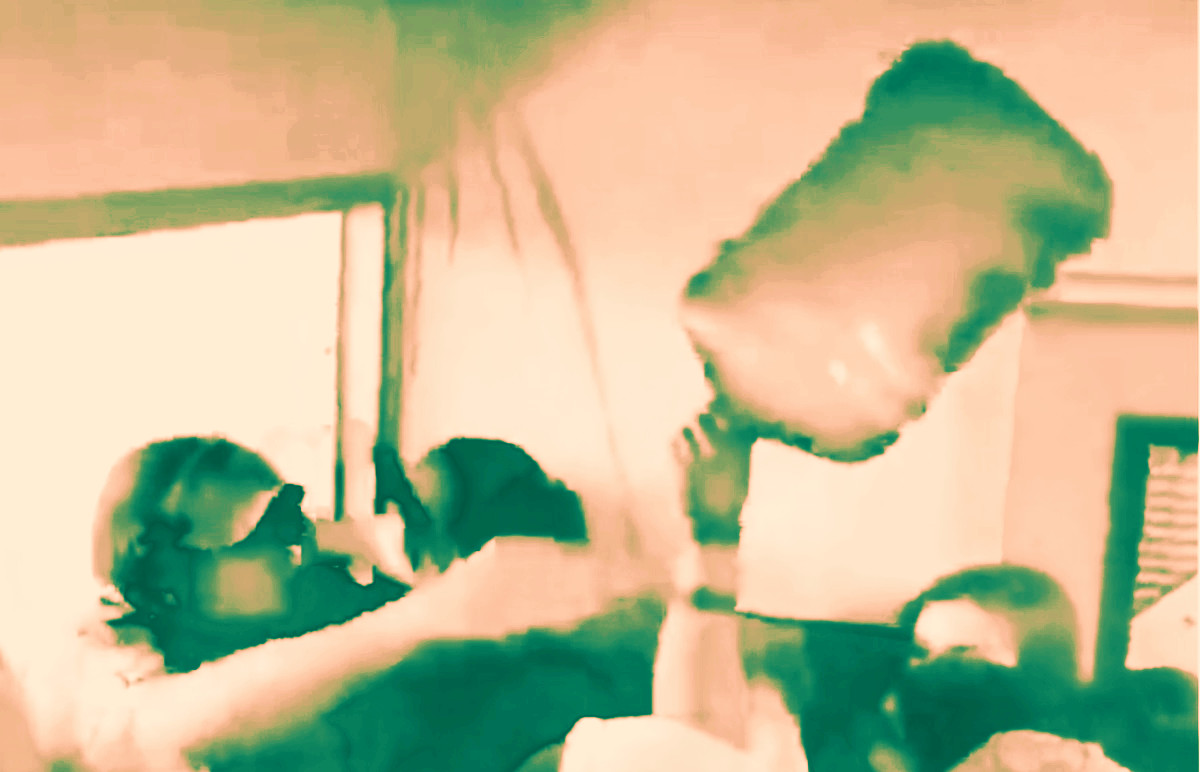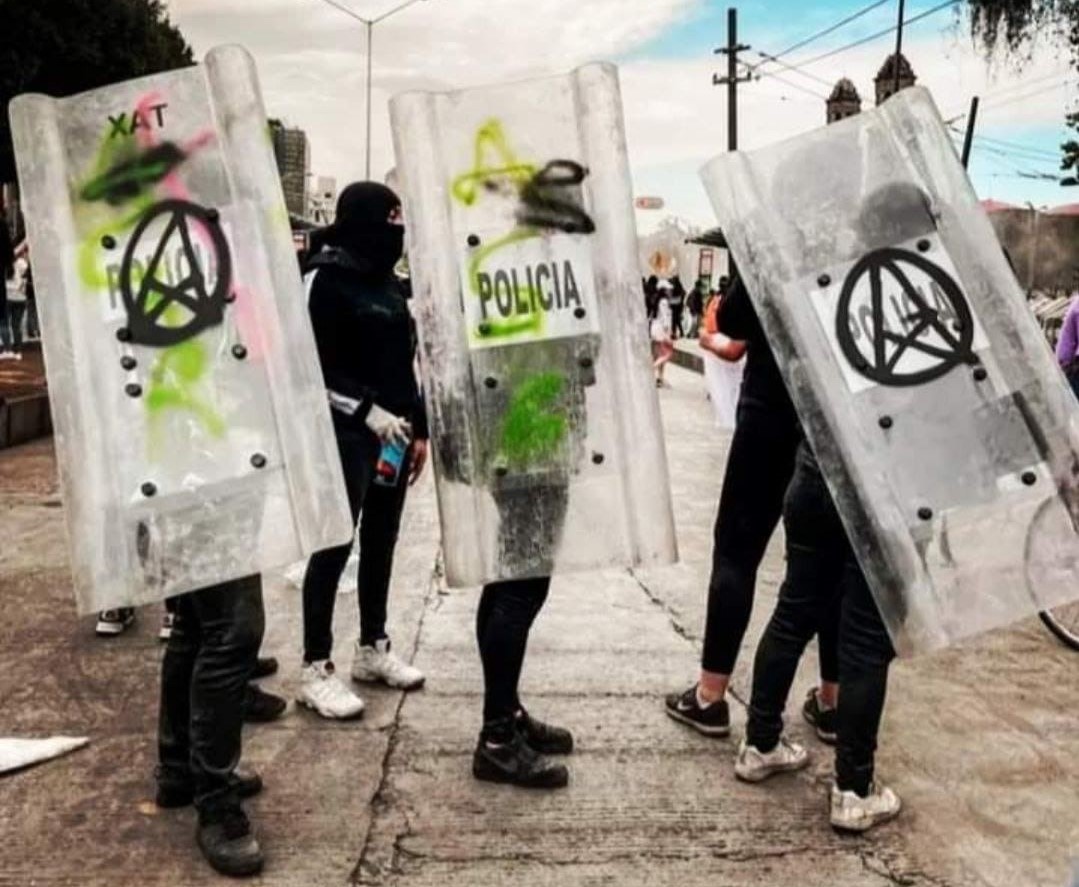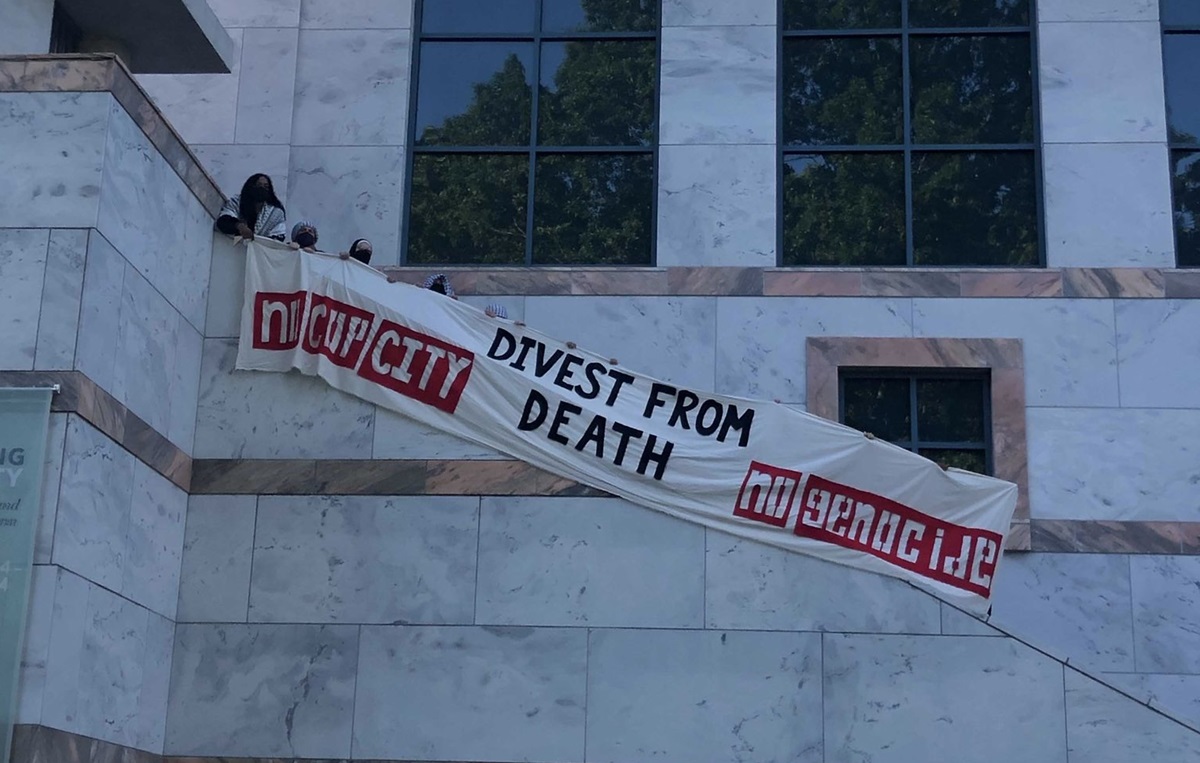Filed under: Editorials, Solidarity, War

Editorial originally posted to Montreal Counter-Info on building solidarity with Palestine.
Recent years have seen intense and conflictual debates within the radical left on how to act in solidarity with marginalised and oppressed groups and on the role of allies (a word to which many, including myself, prefer the term accomplices). There is no doubt that Indigenous, Black, queer and transfeminist struggles have deeply reshaped both vocabularies and practices, greatly enriching and complexifying our thoughts and struggles. These questions have simultaneously created profound disagreements, enabled new alliances, transformed relations of force, and led to scissions. Despite certain divisions, the particular context of the past years has at least established certain relatively agreed-upon principals, and I am stunned that we need to recall these principals now, as Israel’s war against the Palestinian people demands that we once again adopt a position of solidarity.
Apparently, the need to listen to and believe the oppressed, particularly when we find ourselves on the side of the oppressor, is not self-evident in the Palestinian context, even as it is considered imperative in many other contexts. Similarly, it is somehow unclear that we must take the posture notably adopted during Indigenous decolonial struggles : prioritize the voice(s) of the people concerned and acknowledging their complete leadership of the ongoing resistance movement. In our solidarity with Palestine, we must once again accept a secondary role: to sometimes stay silent, to listen, and to learn.
Listening does not mean stopping our critical reflection on the information and positions that we receive. Listening means avoiding the temptation to homogenize Palestinians, attempting to hear the multiple voices of their liberation movement, taking the time to try to understand their internal conflicts, and thinking with the care necessary when considering situations with foreign codes of meaning. And listening certainly means “not speaking” recognizing our extreme exteriority to the reality lived by Palestinians—in Palestine or elsewhere—and acknowledging that we may not be in a position to develop and publicly share strategic considerations. If this seems obvious to me, there is something I am even more certain of: it is in no way our role to emphasize “complexity” and bring “nuance” to the situation. At a moment when the so-called “complexity of the conflict” is constantly deployed to avoid a strong condemnation of Israel in the public space, to present this type of reflexion is simply unacceptable.
We must couple a position of true listening, with the humility and uncertainty this implies, with a position of firm and engaged solidarity. In a context where Canadian government keeps reiterating its support to Israeli violence, this second dimension is essential and urgent. Above all, we must show up. Go to protests and actions, regardless of whether their tactics could differ from the rituals of the Montreal far left. Solidarity with Palestine is not a question of abstract and symbolic internationalism, but of concrete opposition to our own state, which is materially engaged in the oppression of the Palestinian people.
We also bear this responsibility towards those for whom our home is a land of exile, whether it be temporary or permanent. It is critical that the Palestinians with whom we share our city not only feel respected as humans whose fundamental rights we defend, but as actors with real agency, possessing thoughts, heritages, and political practices that are rich and singular. As citizens of a state directly implicated in making Palestine inaccessible and uninhabitable for its diaspora, we must do all we can to make our home liveable for those who find themselves here, a place where life is a synonym of dignity and not solely survival, and where exile may unfold as a political experience. This comment also applies to those peoples for whom the Palestinian struggle is a fundamental issue deeply rooted in their political culture.
To Palestinians and their long-standing accomplices from the Middle East and Arab world: know that certain silences arise from an immense respect for your struggle, and they do not exclude total solidarity, in words and in actions. I release this statement only because I see my friends from the Middle East dismayed by the weak stance taken by local radical left; this has pushed me to write, out of the wish that my political world be a place of sincere welcome and solidarity.
To those who share my form of silence: show up. While solidarity in words means little at the moment, solidarity in the streets will never be too much.
Long live free Palestine.
Image by hosny salah from Pixabay




